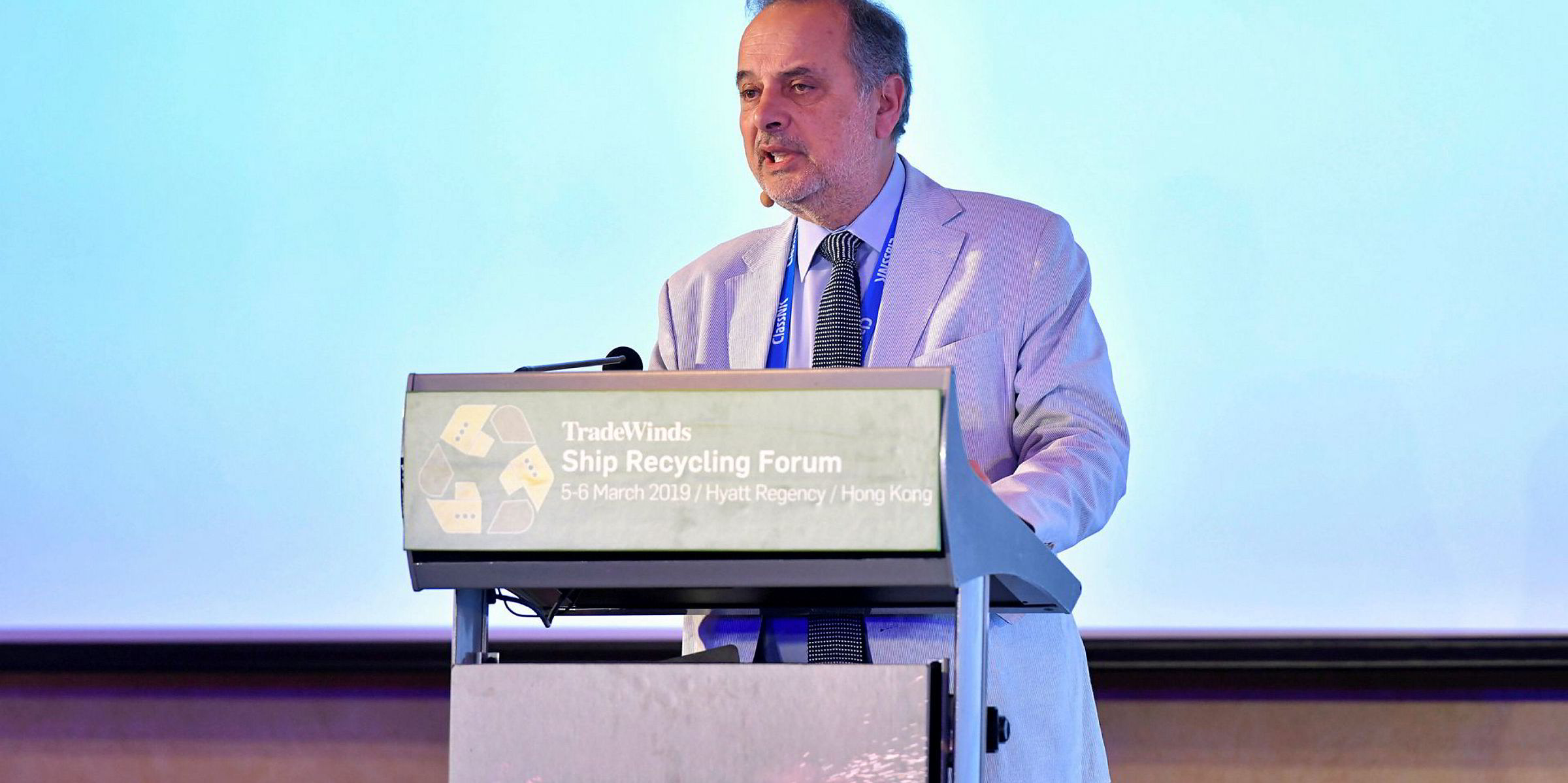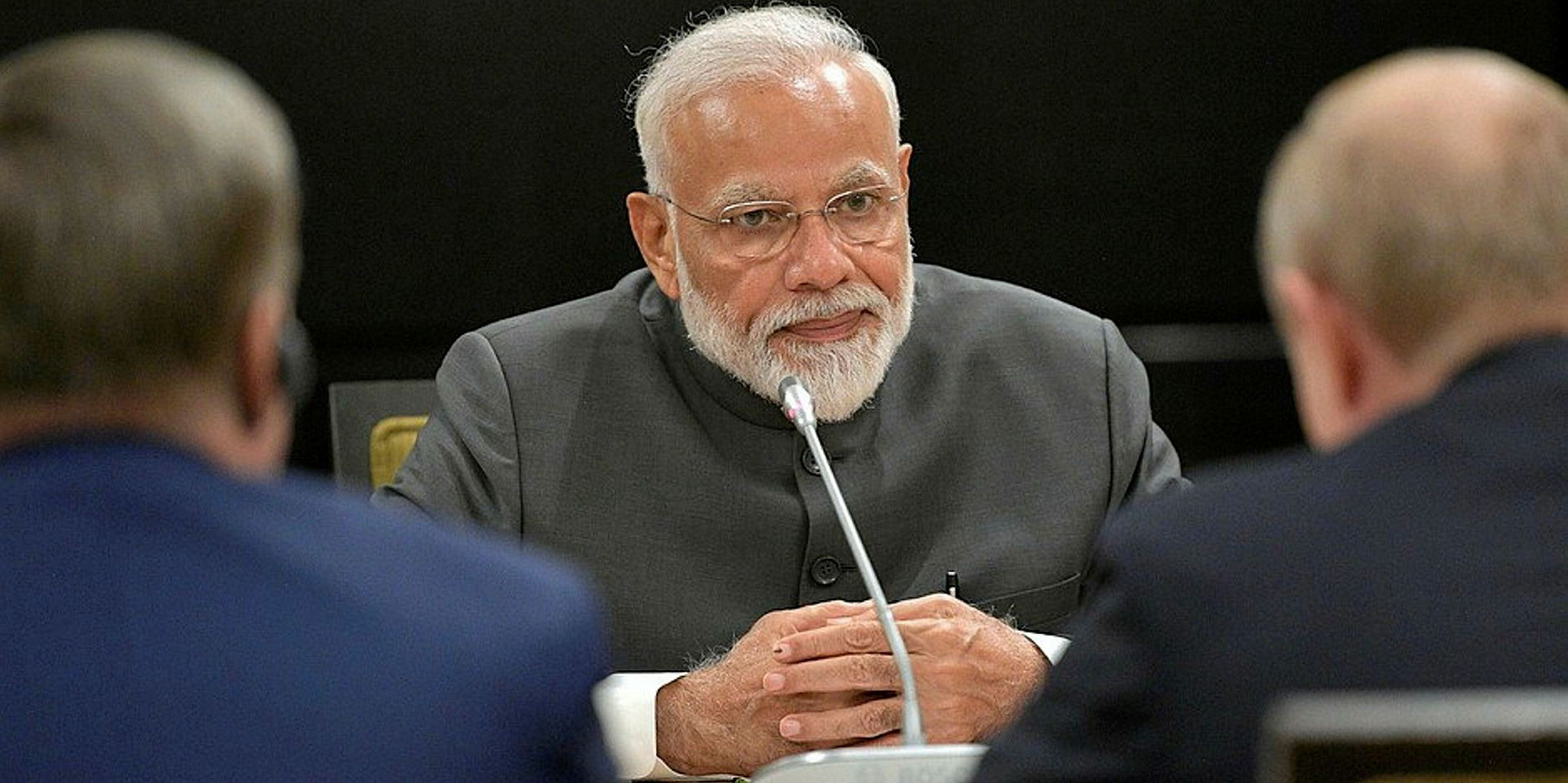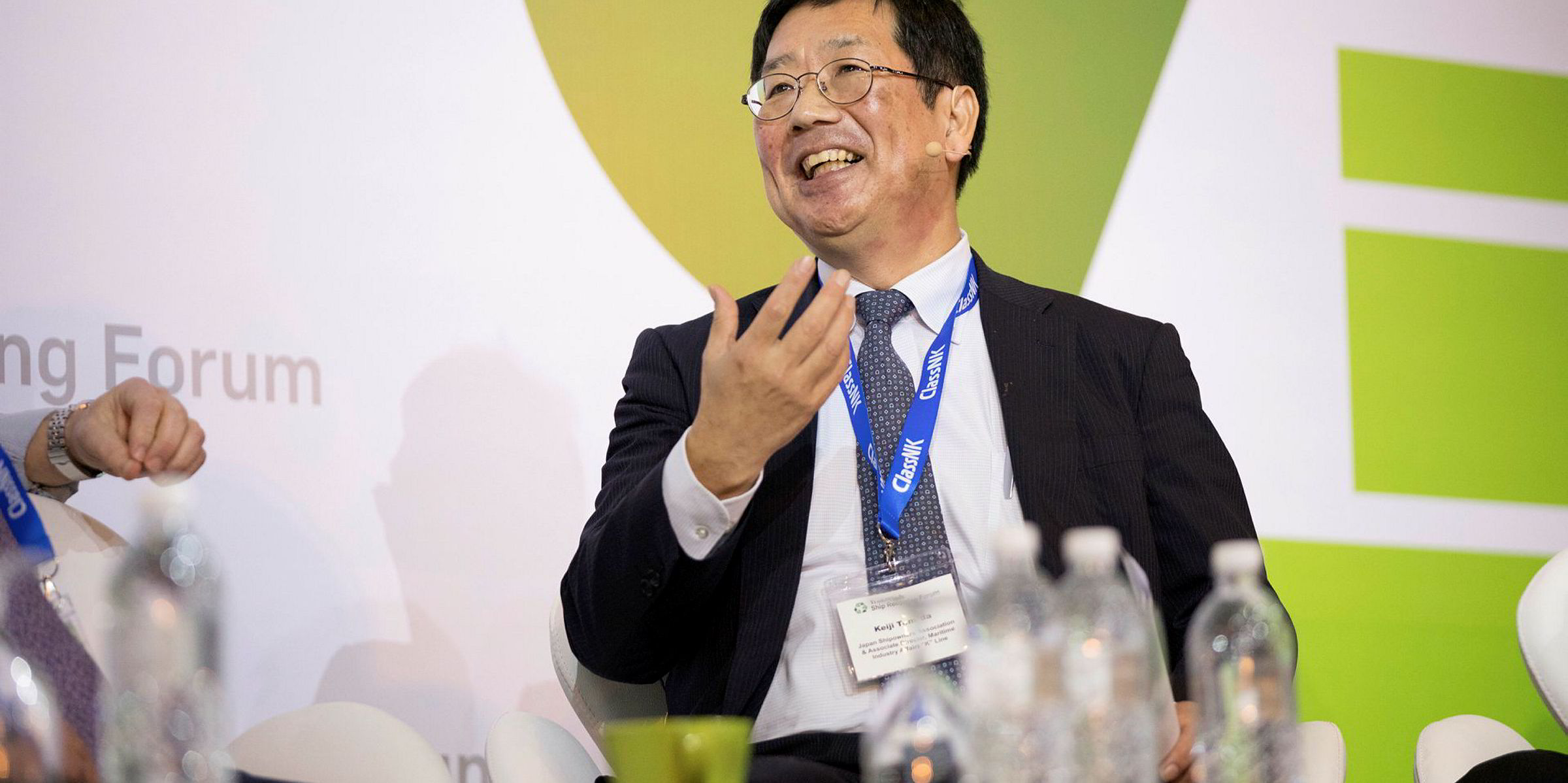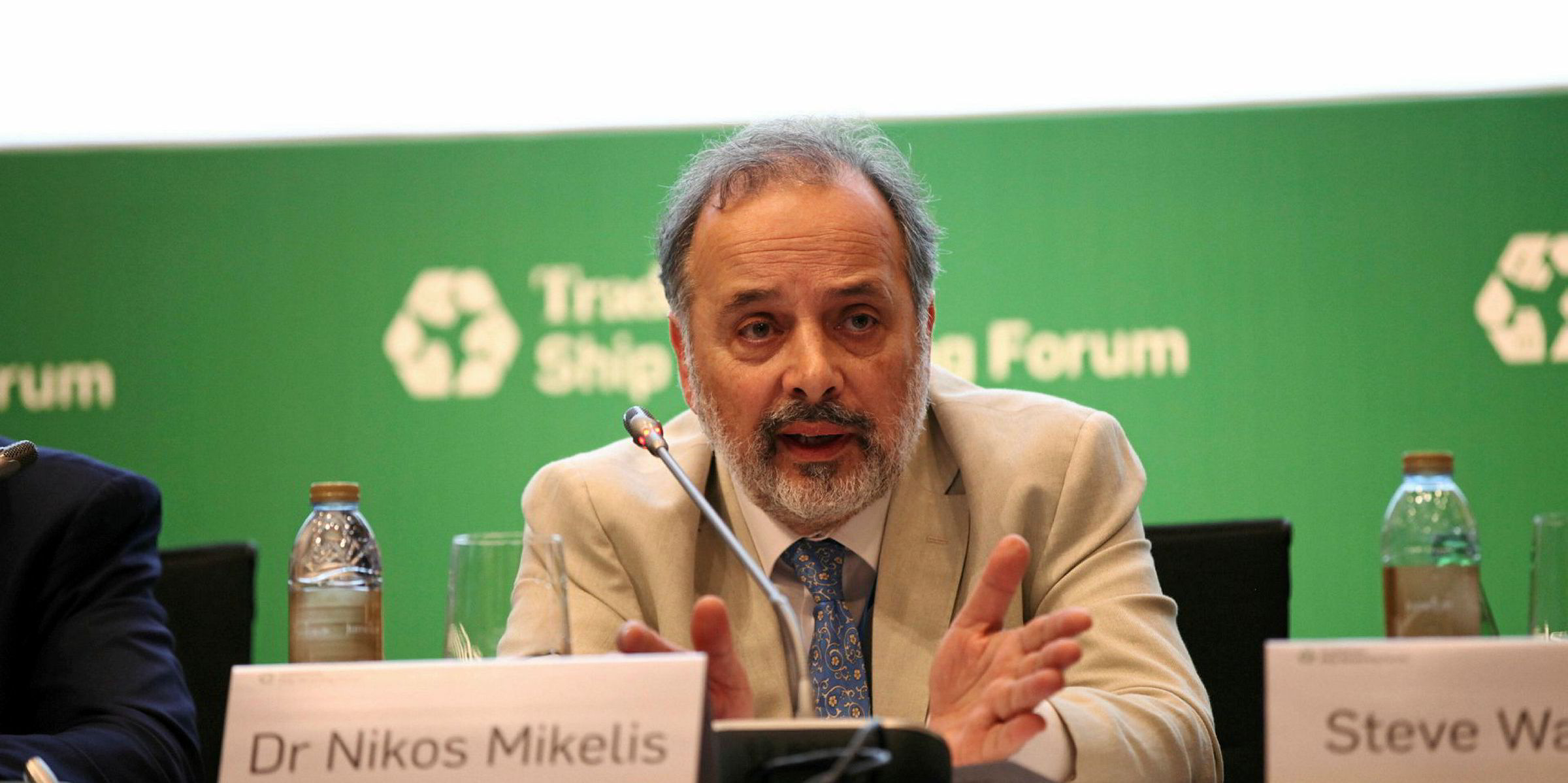Much excitement followed India’s ratification of the Hong Kong International Convention for the Safe and Environmentally Sound Recycling of Ships last November, with pundits announcing that the accord was nearing entry into force globally.
The shipping industry is desperate for a global IMO regulation to replace existing laws, such as the Basel Convention and the European Union’s Ship Recycling Regulation.
But before the Hong Kong Convention can become law, it must meet strict criteria — and GMS non-executive director Nikos Mikelis, who was a key figure in developing the regulation, knows exactly what needs to happen.
Mikelis said India’s ratification satisfied the first of the Hong Kong Convention’s requirements — that 15 states must sign up before it takes effect.
A second hurdle is that signatories must represent 40% of the world’s fleet. So far, they account for about 30%. Ratification by either Liberia or the Marshall Islands would meet the marker.
However, it is a third requirement that is the real sticking point.
Signatories must include nations with enough recycling capacity to demolish 3% of the fleets flagged by those nations that back it. Despite India and Turkey ratifying the Hong Kong Convention, the recycling capacity of current signatories only amounts to about 2.6%.
“Whereas both [the Marshall Islands and Liberia] appear keen to see the Hong Kong Convention enter into force, they, as well as other registers, are apparently reluctant to ratify, in case too much tonnage is accumulated, making it difficult or even impossible for the third condition to be met,” Mikelis said.
Exaggerated fears
“Nevertheless, a close examination of the fleets and capacities involved would suggest that these fears are to some degree exaggerated.”
He added that if China and Hong Kong were to accede to the convention, it would be enough to meet the remaining conditions. While China has now exited the recycling market, the Hong Kong Convention criteria recognises capacity used in the past 10 years.
“China will continue to have, for a few more years, significant ‘notional’ or ‘legacy’ shiprecycling capacity, arising from the tonnages it recycled before banning the import of end-of-life ships,” Mikelis said.
If China and Hong Kong were to sign up today, then the Hong Kong Convention would enter into force in two years' time.
Ratification by either Bangladesh or Pakistan would also get the regulations over the line in terms of recycling capacity.
Mikelis believes Bangladesh's yards are starting to improve to level that would allow them to adopt the Hong Kong Convention.
International aid
Bangladesh's Ministry of Industries has said it wants the country to ratify the Hong Kong Convention by 2023. To that end, it has been receiving international aid from Norway to help the industry meet the required environmental standards.
Mikelis said: "The country’s administration is now well aware of what is required... while a leading recycling yard in Bangladesh has transformed itself into a model industrial facility, becoming the first yard in the country to be awarded a statement of compliance to the convention.
"A second yard in Bangladesh is expected to be awarded a statement of compliance soon, and it is understood that a few more yards are working towards compliance.”
If Bangladesh achieves it goal, the Hong Kong Convention could be enforced by 2025.







